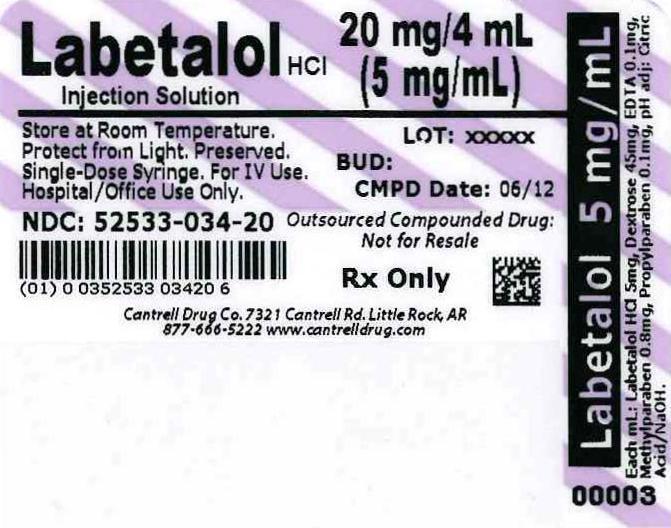Labetalol Hcl Injection while Breastfeeding

Is Labetalol Hcl Injection usage safe while breastfeeding? If a lactating mother is using it can there be any effect on growth or development of infant?

Labetalol Hcl Injection Breastfeeding Analsys
Labetalol hydrochloride while Breastfeeding
SafeCAS Number: 36894-69-6
It is excreted into breast milk in non-significant amounts, without side-effects being reported in breastfed infants of treated mothers. Plasma levels among breastfed infants have been very low or undetectable. When used during pregnancy it has been associated to the Phenomenon of Reynaud in the nipple and a higher risk for neonatal hypoglycemia. The American Academy of Pediatrics rates it as commonly compatible with breastfeeding.
Labetalol Hcl Injection Breastfeeding Analsys - 2
Labetalol hydrochloride while Breastfeeding
CAS Number: 36894-69-6
Because of the low levels of labetalol in breastmilk, amounts ingested by the infant are small and would not be expected to cause any adverse effects in fullterm breastfed infants. No special precautions are required in most infants. However, other agents may be preferred while nursing a preterm infant.
What should I do if I am breastfeeding mother and I am already exposed to Labetalol Hcl Injection?
It is always a good idea to keep your healthcare provider or doctor informed about your drug usage during pregnancy and breastfeeding but if you have not informed your doctor about Labetalol Hcl Injection and have used it then do not panic as Labetalol Hcl Injection is mostly safe in breastfeeding and should not cause any harm to your baby.
I am nursing mother and my doctor has suggested me to use Labetalol Hcl Injection, is it safe?
Definitely, Labetalol Hcl Injection is safe in lactation for baby. No wonder your doctor has recommended it.
If I am using Labetalol Hcl Injection, will my baby need extra monitoring?
No extra baby monitoring required while mother is using Labetalol Hcl Injection
Who can I talk to if I have questions about usage of Labetalol Hcl Injection in breastfeeding?
US
National Womens Health and Breastfeeding Helpline: 800-994-9662 (TDD 888-220-5446) 9 a.m. and 6 p.m. ET, Monday through Friday
UK
National Breastfeeding Helpline: 0300-100-0212 9.30am to 9.30pm, daily
Association of Breastfeeding Mothers: 0300-330-5453
La Leche League: 0345-120-2918
The Breastfeeding Network supporter line in Bengali and Sylheti: 0300-456-2421
National Childbirth Trust (NCT): 0300-330-0700
Australia
National Breastfeeding Helpline: 1800-686-268 24 hours a day, 7 days a week
Canada
Telehealth Ontario for breastfeeding: 1-866-797-0000 24 hours a day, 7 days a week
